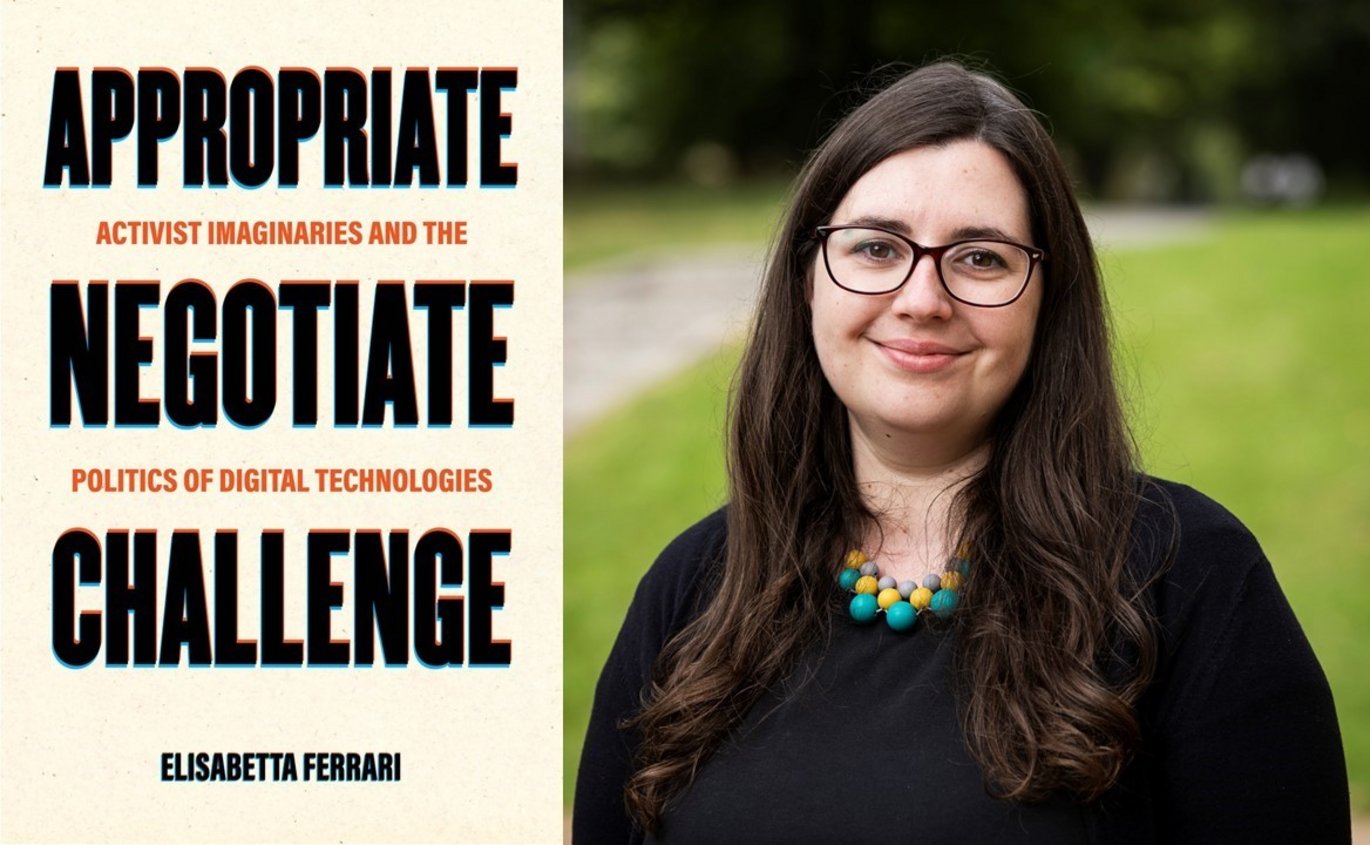New book: Appropriate, negotiate, challenge: Activist imaginaries and the politics of digital technologies
In her new book Appropriate, Negotiate, Challenge, AIAS-AUFF Fellow Elisabetta Ferrari investigates the relationship between activism and digital technologies, focusing on how activists think and talk about technology’s role in social change and what this reveals about the politics of digital technologies.

Activists use digital technologies to communicate, coordinate and organize for social change. At the same time, these big corporate digital platforms are also used to spread disinformation, racism and abuse. In her new book Appropriate, negotiate, challenge: Activist imaginaries and the politics of digital technologies published by University of California Press, Elisabetta Ferrari explores contemporary social movements and digital media, and reinvents how we approach the question of mobilization.
Technological imaginaries
With a focus on how activists think about the politics of digital technologies and how they imagine the role of technology in their struggles for social change, Elisabetta Ferrari develops the term “technological imaginary” to examine how social movements construct discourses about technology and its political implications. She analyses the powerful set of discourses about technology that have been popularized by Silicon Valley technology companies and shows that activists respond to them by creating their own technological imaginaries.
Cross-country comparison: Hungary, Italy, the US
Her book is based on empirical analyses of three contemporary leftist movements in Hungary, Italy and the United States. To study these movements, she conducted interviews, field observations and developed a novel creative research method, the “visual focus group,” a creative, qualitative research method, incorporating a collective drawing task within the structure of a focus group.
The three cases enable Elisabetta Ferrari to propose a typology of activists’ technological imaginaries based on how they respond to Silicon Valley’s imaginary: imaginaries of appropriation, negotiation or challenge. Hereby, Ferrari shows how social movements’ imaginaries are shaped by the political ideology of activists and by the political context in which they exist, and that they shape how activists think about the political possibilities available to them.
In particular, she argues that although social justice-oriented movements are pushing back against Silicon Valley, their reliance on the same corporate digital technologies created by Silicon Valley seems to limit their ability to imagine political and technological alternatives.
The book is relevant for students and researchers with an interest in activism, social movements, the media and digital technologies.
Book Launch Reception at AIAS: 29 November at 14:00
On Friday 29 November at 14:00 to 15:00, a book launch reception will be held at AIAS – join this Friday afternoon event to hear Elisabetta Ferrari present her new book, its framework, key findings and messages.
The book launch is open to all and free of charge by prior registration here: https://aias.au.dk/events/show/artikel/book-launch-reception-appropriate-negotiate-challenge
- Deadline to register: Thursday 28 November at 12:00 (CET noon)
Access the book here
Appropriate, negotiate, challenge: Activist imaginaries and the politics of digital technologies by Elisabetta Ferrari, University of California Press, 19 November 2024:
https://www.ucpress.edu/books/appropriate-negotiate-challenge/paper#table-of-contents
Contact
Elisabetta Ferrari, AIAS-AUFF Fellow
E-mail: eferrari@aias.au.dk
Aarhus Institute of Advanced Studies, AIAS
Høegh-Guldbergs Gade 6B
DK-8000 Aarhus C
Denmark
